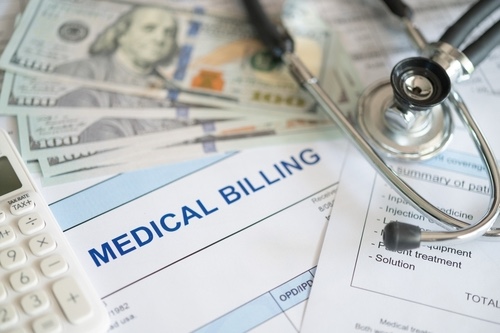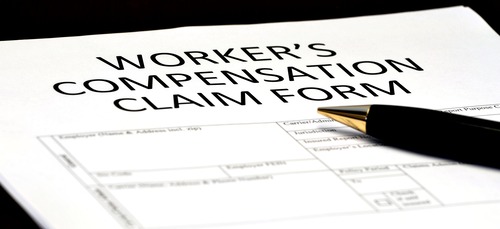Determining Fault in Florida and How It Influences Your Personal Injury Case
- Personal Injury
When a potential client is face to face with a Miami personal injury lawyer for a free case review, their most common question is: who pays for my damages? The second is: how much is my personal injury case worth? These questions have complex answers, which vary depending on several factors.
One of the most important factors is the type of personal injury case you have. It may appear surprising, but Florida applies different concepts of fault to specific types of torts. An experienced Miami personal injury lawyer will know which one applies to your case from the first appointment and will base their evaluation of potential damages based on it.
But let us start with the basics: the concept of proving a personal injury case.
Any Personal Injury Case Is Based on Four Elements that Must Be Proven
When you ask “Do I have a case?” a Miami personal injury lawyer will give you the answer based on the key elements that they must prove with evidence. All over the United States, including in Florida, the plaintiff (the person who files a claim) has the burden of proof.
This means that they must persuade a jury, with a preponderance of the evidence that:
- The other party owed them a duty of care.
- They breached their duty through negligence and caused an accident.
- You suffered injuries as a result of the accident.
- The injuries caused you economic damages.
You must be able to prove these aspects not just in a lawsuit, but also during negotiations with an insurance adjuster. Since they are looking for any reason to dismiss your claim, missing any of these points will definitely give them valuable ammunition.
Florida Has a Complex Approach to Fault in Personal Injury Cases
As we hinted at the beginning of the article, the person or entity liable to pay damages in a personal injury case, and the maximum potential value of your damages depends on the type of tort.
There are three different interpretations of liability applicable in our state. They are as follows.
1. The No-Fault Doctrine for Motor Vehicle Accidents
When it comes to car accidents, Florida applies a no-fault doctrine. This means that every driver must carry their own insurance for accidents. When they get into a crash, each driver will recover damages from their own insurance company.
Does this mean that fault is irrelevant? The answer is yes and no. No, fault is not relevant, because there is no bar from recovery. However, a driver’s percentage of fault will be assessed by their insurer. Then, the total damages will be reduced by the sum representing their percentage of fault.
Thus, if you were 90% at fault for a crash, you can still recover 10% of the damages.
And even if you are dealing with your own insurer, you should still hire a Miami personal injury lawyer to negotiate your settlement. You will not get fair treatment just because you are their client if you try to file a claim on your own.
The Serious Injury Exception
Even in this particular case of personal injury case, there are situations when you can sue the other driver. The exception is stipulated in Florida Statutes 627.737(2) and states that if you suffered a serious injury you can pursue the at-fault driver for damages.
The law defines serious injury as:
- Significant and permanent loss of an important bodily function
- Permanent injury, other than scarring or disfigurement
- Significant and permanent scarring or disfigurement
- Death.
2. Strict Liability for Defective Products Torts
If you were injured by a product due to a design or manufacturing defect, your Miami personal injury lawyer will not have to prove the defendant’s duty of care. It is understood that all producers, distributors and sellers owe customers a duty of care in the sense of putting safe products on the market.
However, in this particular case you have to prove that:
- You used the product as it was intended by the manufacturer.
- You did not make any modifications to the product.
An experienced Miami personal injury lawyer will be able to prove that with evidence, including the technical expertise performed on the product.
3. Comparative Fault for Other Types of Personal Injury Cases
In slip and fall accidents, medical malpractice, or other personal injury torts, the courts will have to determine the percentage of fault for each party. This is called the comparative fault principle.
For example, if someone was looking at their mobile phone when they stepped on a puddle on the floor, they will be considered partly at fault for their slip and fall accident.
It is an experienced Miami personal injury lawyer’s job to reduce this percentage as much as possible in order to maximize the compensation amount you are eligible to collect.
Whatever the Type of Case, Protect Your Chances of Recovering Damages
Irrespective of the type of tort you have, one thing is true in all cases: you must be careful about what you say and do after the accident. You must understand that insurance companies are not your friend – even when you are dealing with your own auto accident insurer.
They will look for ways to increase your percentage of fault or find errors in the paperwork to dismiss your claim. Follow these cardinal rules after an accident.
- If it must be reported, call the police and wait at the scene until they finish the investigation.
- Take photos and videos of the accident scene to prove how you suffered the injuries.
- Seek medical attention as soon as possible.
- Do not discuss your case with an insurance adjuster on your own.
- Do not post anything about your personal injury case on social media.
- Hire an experienced Miami personal injury lawyer.
Also, remember that the statute of limitations for all personal injury cases in Florida is 2 years after the date of the incident when you were injured. Thus, do not wait very long before you talk to a lawyer.
Understand Your Legal Rights During a Free Case Evaluation!
A Miami personal injury lawyer will know what kind of case you have and which legal concept of fault is applicable from the start. Looking at the available evidence and listening to your side of the story will help them determine if you have a strong case.
You will find out all these important details during an initial and free appointment. If we believe that you have a valid case worth pursuing, we will represent you on a contingency fee basis. Call us now at (786) 686-2857 to schedule your free case review!







